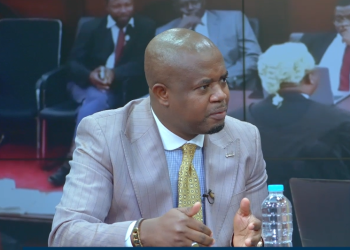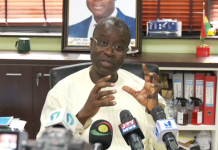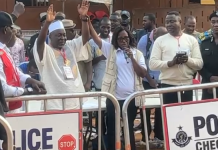The High Court has dismissed the National Democratic Congress (NDC)’s preliminary objection regarding its jurisdiction to hear the Mandamus application filed by the New Patriotic Party (NPP).
On December 31, the NDC argued that the Mandamus application was an attempt by the NPP to challenge the election results in constituencies where the NDC had been declared victorious, without following the proper process outlined in sections 16 and 20 of the Representation of the People Law (PNDCL 284), which mandates that election results be contested through a formal election petition.

However, NPP lawyer Gary Nimako countered that the application was not about invalidating the election results but rather ensuring that the Electoral Commission (EC) fulfilled its constitutional duties. He explained that no results had been officially gazetted, which is a requirement before an election petition can be filed, meaning the case did not qualify as an election petition.
Justice Forson Agyapong, in his ruling, agreed with the NPP’s argument, stating that the case was not an election petition as claimed by the NDC. He emphasized that the central issue was the EC’s failure to carry out its constitutional duties, and therefore, the court had jurisdiction to hear the case.
This ruling comes amid ongoing disputes over the collation of results in constituencies like Okaikwei Central, Ablekuma North, and Tema Central, where the NPP has contested the EC’s initial declarations in favor of the NDC.
The case remains contentious, especially following a Supreme Court decision that overturned a previous High Court ruling which had granted the NPP’s application to compel the EC to re-collate results in these constituencies.
The EC eventually declared NPP candidates as winners in seven constituencies that had originally been declared in favour of the NDC.
With the dismissal of the NDC’s objection, the High Court will proceed with hearing the Mandamus application, which is seen as a crucial step in resolving the ongoing election disputes.
























































![[FREE FREE MONEY] Predict and Win a Guaranteed GH¢200 From Us EVERY WEEK](https://wordpress.ghanatalksradio.com/wp-content/uploads/2022/02/Predict-and-Win-Final-09-03-2021-218x150.jpg)
![[Predict & Win – 8th/Oct.] WIN A Guaranteed ¢200 From Us This Week](https://wordpress.ghanatalksradio.com/wp-content/uploads/2021/10/maxresdefault-16-218x150.jpg)
![[Predict & Win – 2nd] WIN A Guaranteed ¢200 From Us This Week](https://wordpress.ghanatalksradio.com/wp-content/uploads/2021/09/maxresdefault-50-218x150.jpg)
![[Predict & Win – 25th] WIN A Guaranteed ¢200 From Us This Week](https://wordpress.ghanatalksradio.com/wp-content/uploads/2021/09/maxresdefault-36-218x150.jpg)
![[Predict & Win – 18th] WIN A Guaranteed ¢200 From Us This Week](https://wordpress.ghanatalksradio.com/wp-content/uploads/2021/09/maxresdefault-23-218x150.jpg)








![[National cathedral] See full list of churches that have contributed since 2018](https://wordpress.ghanatalksradio.com/wp-content/uploads/2020/09/Ghana-National-Cathedral-GhanaTalksRadio-100x70.jpg)



